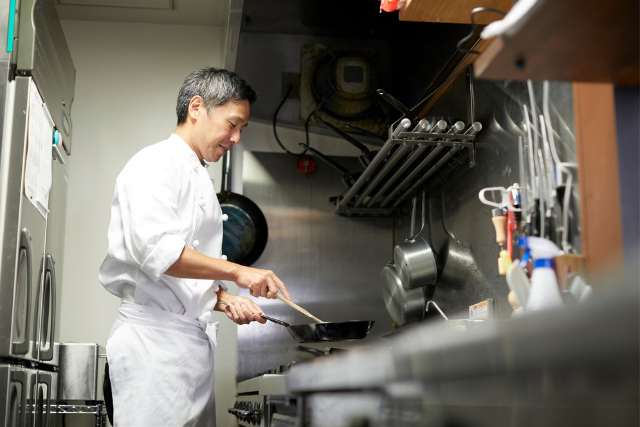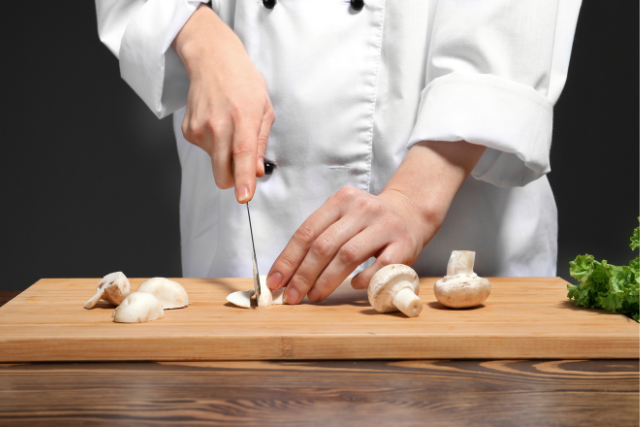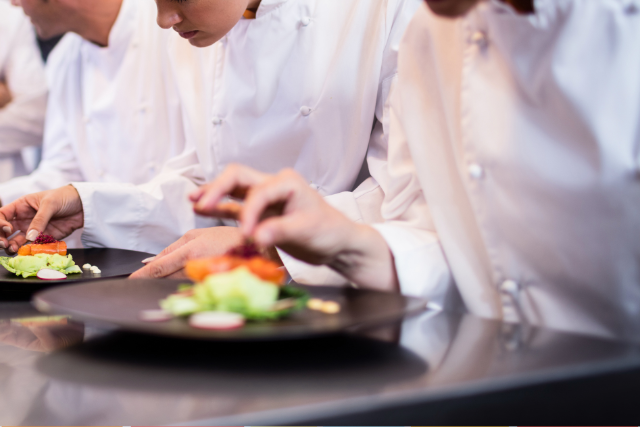
Culinary arts require more than knowing techniques. Every dish relies on discipline and a clear understanding of how professional kitchens operate. These qualities are developed through structured, hands-on training that reflects the pace and pressure of real service.
That’s the approach at CCA Manila, where students learn to stay focused under pressure and consistently execute tasks. Their training is practical and direct, preparing graduates to enter modern food service with the habits and mindset the industry demands.
So, what does it take to succeed in the kitchen? Here’s a closer look at the essential skills every aspiring chef needs and how training programs help build them.
Knife Skills

Knife skills are a reliable measure of professional kitchen training. Recognizing different types of cuts is a starting point, but consistent control during execution shows real ability. Poor knife work leads to uneven cooking and inconsistent textures, compromising a dish’s overall outcome.
Precision also supports efficiency as clean, even cuts come from repeated practice and allow for a more organized and predictable workflow.
This level of consistency is developed early through focused training, beginning with how the knife is held and how the guiding hand moves in sync with the blade. Once those fundamentals are in place, handling the demands of a busy kitchen becomes more manageable.
Kitchen Organization and Cleanliness
Staying organized is essential in any professional kitchen. A clean, well-structured workstation keeps things running smoothly, especially when orders start flying in.
CCA Manila teaches the students to think ahead and keep their stations in order, forming habits that help maintain a steady, efficient pace during service. Instructors reinforce precision throughout the process, guiding future cooks from initial setup to final cleanup until each step becomes second nature and supports a smoother kitchen routine.
Cooking Techniques and Methods
Knowing how to sauté is not the same as understanding when to use the technique. Effective decision-making in the kitchen depends on experience and a solid grasp of foundational methods. This kind of understanding cannot be developed by following recipes alone. Culinary training builds it through consistent practice with essential techniques that form part of daily kitchen operations.
At CCA Manila, students begin applying these methods early in their training. They focus on understanding the reasoning behind each approach and develop the ability to adjust based on varying ingredients and kitchen demands. It strengthens their judgment and prepares them to stay responsive and effective in unpredictable service environments.
Interested in sharpening your skills? CCA Manila offers a range of programs to suit different experience levels and career paths:

Diploma in Culinary Arts & Technology Management
This course for cooking is a solid starting point for those looking to build a long-term career in the culinary world. Many graduates begin as line cooks or chef de partie in respected kitchens, then take on roles such as restaurateur, food entrepreneur, executive chef, corporate chef, or even research and development chef.
Fundamentals in Culinary Arts
Fundamentals in Culinary Arts is a short course that’s a great fit for people with big ambitions, those planning to launch a food business, or professionals looking to strengthen their core skills. It focuses on practical techniques and kitchen fundamentals that build confidence and prepare you for the demands of real-world cooking.
Professional Chef Plus
Professional Chef Plus is a six-month hybrid program that combines online coursework with weekly in-person training. It builds essential culinary knowledge and supports career development through practical experience shaped by industry standards.
Time Management
Timing is one of the most important factors shaping the outcome of a service in a professional kitchen. A dish may be prepared correctly but serving it too early or too late can disrupt the flow and affect how well the team works together. Keeping track of what is on the stove and waiting to be plated requires full attention and awareness of the kitchen environment.
This kind of pressure is normal in culinary work, which is why learning to manage it plays a central role in training. With steady practice, future chefs develop a sense of how tasks should move with each other. They learn to read the kitchen’s pace and adjust to keep service on track.
Good time management also makes the kitchen feel more controlled when things get intense. It supports the team and makes recovering easier if something goes off track.
Adaptability and Problem Solving
As we all know, things don’t always go as planned in the kitchen. Equipment can break down during service, or a dish that worked perfectly in practice doesn’t come together. These situations can interrupt the rhythm, but the best cooks know how to stay steady and work through it.
Students enrolled in the best culinary schools get used to thinking on their feet early in the program. They are encouraged to solve problems rather than just follow instructions.
This mindset is valuable if you’re building a business. Courses like the Bachelor of Science in Entrepreneurial Management or the Food Entrepreneurship Masterclass help sharpen your kitchen and business instincts.
Passion and Resilience
Finally, success in culinary arts also involves long hours and physical demands. Passion fuels the drive to keep going when things get tough. Resilience helps chefs learn from mistakes and continue showing up with energy and enthusiasm.
Build Essential Skills with CCA Manila!
At CCA Manila, learning starts the moment you step into the facility. You practice real techniques and work through the kinds of challenges that come up in any busy restaurant.
We teach you to make smart decisions when things don’t go as planned and stay focused even in the middle of the rush. Our instructors guide you every step of the way, but we also challenge you to take initiative and grow through hands-on experience.
Enroll now in our programs and start building the kind of confidence that belongs in any professional kitchen!
